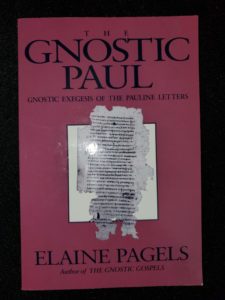Over the centuries, the figure of Paul has played a vital role in defining Christian belief, in many permutations. One can think of there being the “Sexist Paul”, the “Pro-Slavery Paul”, the “Libertine Paul”, the “Gnostic Paul”, and many others.
In the modern era, debates have formed surrounding the “New Perspective” on Paul and how to reinterpret his writings for the modern age. Its critics summarize this New Perspective, to give one example, as rejecting the notion of justification by faith alone, arguing instead that works are required for justification. The movement’s proponents explain it in a number of different ways; N.T. Wright argues that Paul charges us “with being and bringing signs of hope, of restorative justice, to the world… Let’s put the justice back in justification.” 
Of interest is N.T. Wright’s argument in the linked article that “anything to do with strong religious emotion, anything which downplays outward observance… reinforce that gnosticism which is a poison at the heart of much contemporary culture”.
I would disagree with Dr. Wright, and in fact argue that his position is aligned with gnostic perspectives on Paul. In fact, as we continue looking at Elaine Pagel’s book The Gnostic Paul, we’ll see how certain gnostic thinkers interpreted Paul’s writings. Specifically, in this post, we’ll look at a gnostic interpretation of Paul’s letter to the Galatians.
Interested in learning more? Click below to continue reading!



